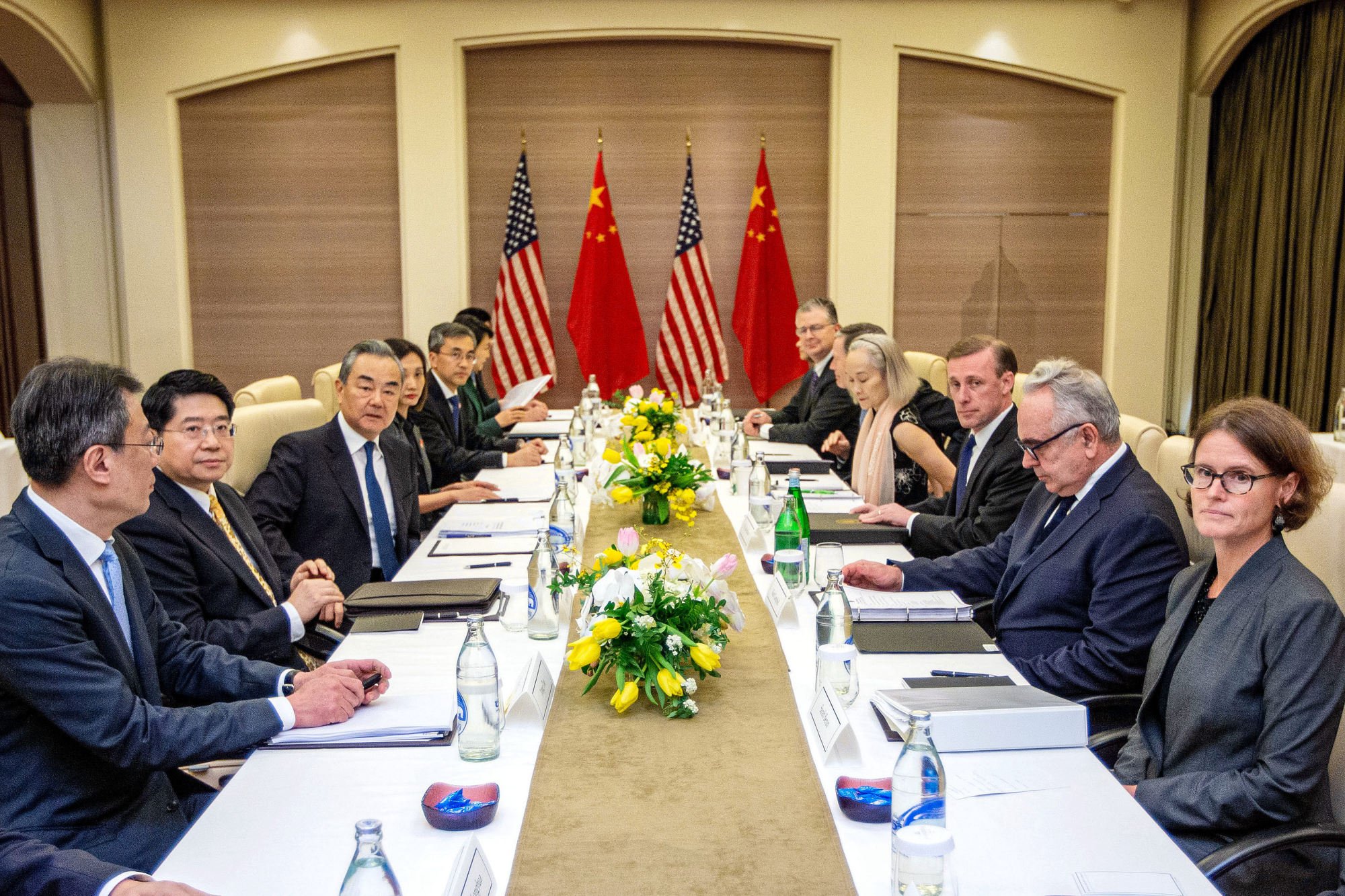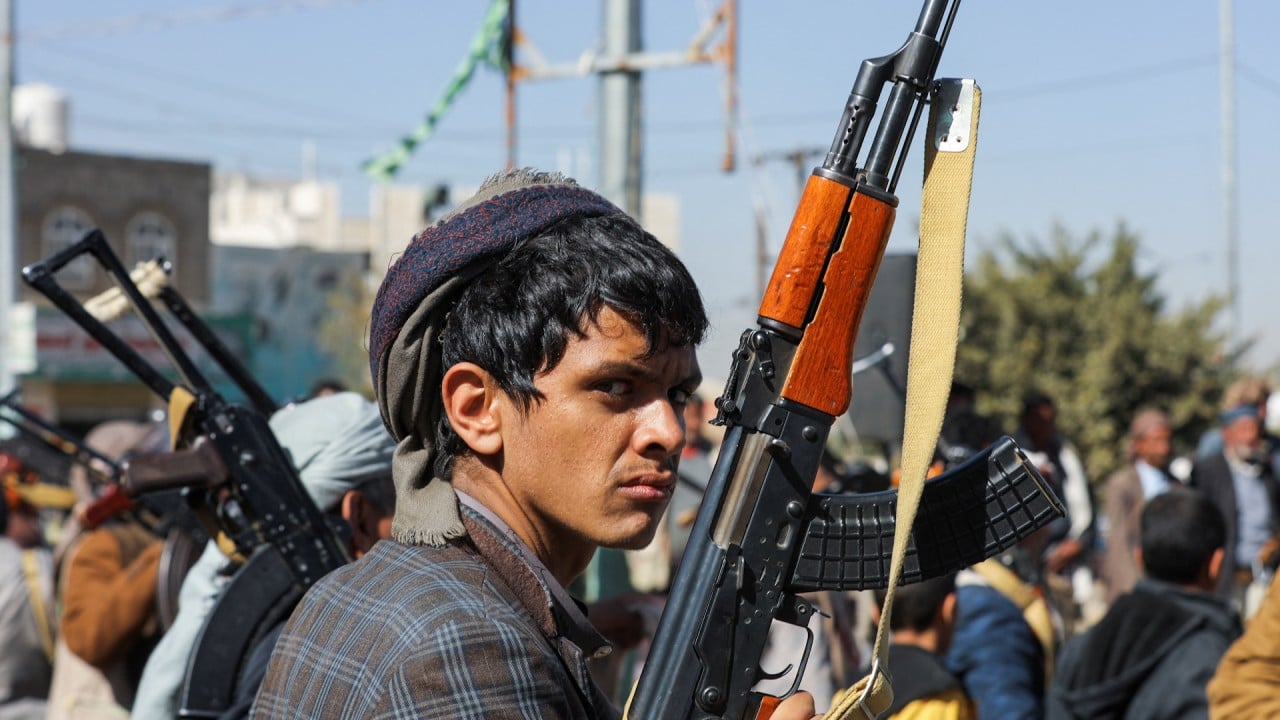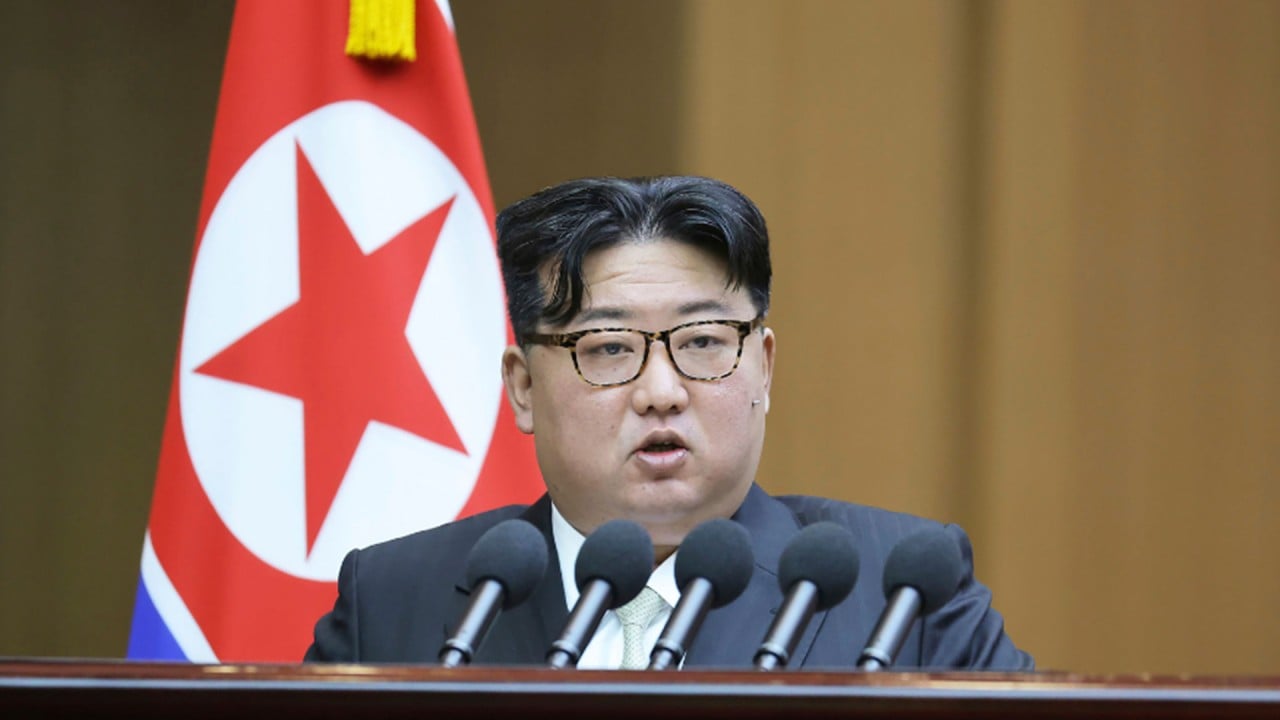
China and US ‘step in the right direction’ with top-level talks in Thailand
- US national security adviser Jake Sullivan and Chinese Foreign Minister Wang Yi tackle Taiwan and the Middle East in discussions in Bangkok
- Meeting yields agreement for presidents of the two countries to hold a phone call ‘in the coming months’
Following the talks between China’s top diplomat Wang Yi and US national security adviser Jake Sullivan, which Beijing described as “candid, substantive and fruitful strategic communication” on handling “important and sensitive issues” in bilateral ties, the US confirmed plans for an upcoming call between the two countries’ top leaders.
Chinese President Xi Jinping and his American counterpart Joe Biden will hold a phone call “this spring... in the coming months” to discuss key areas of the bilateral ties, a senior Biden administration official told reporters on Saturday, reiterating that competition remains and the US “approach” on Beijing was unchanged.
During the meeting, which spanned 12 hours over two days, Sullivan stressed that the two sides did not seek “conflict or confrontation” and there were areas of cooperation, the US official added.

The most senior dialogue between the two countries since the Xi-Biden summit in San Fransisco in November, will help further stabilise fragile ties, analysts said, as the rival powers explore opportunities to cooperate on hotspot issues from North Korea to the Middle East.
According to the Chinese foreign ministry, Wang urged Washington to “learn lessons” from the 45 years of bilateral ties.
“[We should] treat each other as equals instead of being condescending, seek common ground while reserving differences instead of highlighting differences, respect each other’s core interests instead of harming each other’s core interests, and work together to build a correct way of getting along with China and the United States through mutual respect, peaceful coexistence and win-win cooperation,” he said.
US tipped to press China on Houthi Red Sea attacks in talks in Thailand
Sullivan underscored the importance of maintaining peace and stability across the Taiwan Strait, according to a White House readout.
Shen Dingli, a Shanghai-based international relations scholar, said the meeting between Wang and Sullivan was part of a process to improve ties strained by an intensifying geopolitical and ideological rivalry.
Shen said the two men would have to address how to implement the consensus reached between Xi and Biden in San Francisco.
Beijing sees Taiwan as a breakaway province that must be reunited, by force if necessary. The United States, like most countries, does not recognise Taiwan as an independent state but is opposed to any unilateral change to the status quo.
“The biggest risk to peace and stability in the Taiwan Strait is ‘Taiwan independence’, and the biggest challenge to China-US relations is also ‘Taiwan independence’,” he was quoted as saying.
The Chinese statement said both sides agreed that the two heads of state would maintain regular contact and Beijing and Washington would promote military and other exchanges “at all levels in all fields” and “further discuss the boundary between national security and economic activities”.
It said Wang and Sullivan also discussed the situation in the Middle East, Ukraine, the Korean peninsula and the South China Sea.
Beijing has stepped up military pressure on Taiwan after the self-ruled island elected William Lai Ching-te as its new president, paving the way for a third successive term in office for the independence-leaning Democratic Progressive Party.
After the announcement of the Wang-Sullivan meeting, Beijing’s People’s Liberation Army sent more than 30 warplanes and a group of navy ships towards Taiwan, according to the island’s defence ministry.
“Neither Beijing nor Washington wants the new government in Taiwan to change the status quo. The two countries will have to work together to some extent to maintain the stability across the Taiwan Strait,” Shen said.
While Beijing and Washington may not be able to bridge their differences on Taiwan, the South China Sea and hi-tech restrictions, they could “explore opportunities to cooperate and even partner” on other regional issues, Shen said.
“There are other emerging regional tensions to talk about, such as a safe shipping lane in the Red Sea, and the situation in and around the Korean peninsula,” he said.
Tensions on the peninsula flared again earlier this month after North Korean leader Kim Jong-un designated Seoul as the North’s “principal enemy”.
Beijing sent vice foreign minister Sun Weidong on Thursday to Pyongyang, where he met North Korean Foreign Minister Choe Son-hui. The two countries pledged to strengthen tactical cooperation and defend common interests, Pyongyang’s official KCNA news agency reported on Saturday.
The Biden administration official briefing reporters on Saturday said that Beijing “certainly” maintained influence on Pyongyang and “our expectation would be that they use that to bring us back to the path of denuclearization”.
Beijing has also been engaging in cautious diplomatic activity in relation to the Red Sea, with China expressing concerns over the escalating situation.
During the two-day meeting, Sullivan once again called on Beijing to play a “constructive” role in curbing Houthi attacks on commercial ships in the critical waterways by using its “substantial leverage” with Iran, the senior Biden administration official said.
Firms eye Plan B ahead of Lunar New Year as Red Sea crisis roils supply chains
The official added that Beijing says that it was raising the issue with Tehran but “we’re certainly going to wait before we comment further on whether we think they’re actually raising it”.
Citing Iranian sources, Reuters reported on Friday that China had exerted pressure on Iran during meetings in Beijing and Tehran, asking Iran to help rein in attacks on ships in the Red Sea by the Iran-backed Houthis, or risk harming business relations with Beijing.
But Lu Xiang, an expert from the Chinese Academy of Social Sciences, argued China’s peace-brokering efforts in the Red Sea and on the Korean peninsula had nothing to do with the Biden administration’s repeated appeals to Beijing to use its influence.
“China has an interest in stability and security in the Taiwan Strait, the South China Sea, on the Korean peninsula and in the Middle East,” he said.
According to Lu, Beijing is concerned that escalation of the Red Sea crisis will deal a devastating blow to trade between Europe and Asia.
“China will definitely help broker peace in the region given its friendly relationship with Iran. But the conflict between the United States and Iran is not caused by China,” he said.
Lu said that for Beijing, the US demand for China’s help was “duplicitous” given Washington’s Indo-Pacific strategy was aimed at curbing Beijing’s involvement in the Indian Ocean.
China vows to work with North Korea on regional stability as tensions escalate
“The main purpose of the [Wang-Sullivan] meeting is to maintain communication. Aside from that, it is hard to have high expectations for bilateral ties. And we may need to prepare for possible major changes in the US,” he said, referring to the possibility of Donald Trump returning to power for a second term in the November election.
Li Mingjiang, an associate professor at Nanyang Technological University’s S. Rajaratnam School of International Studies in Singapore, said the meeting between Wang and Sullivan remained one of the most important mechanisms for bilateral strategic dialogue.
“Their dialogue is significant because it is focused more on some of the big, fundamental security and strategic issues that could have important bilateral and global impact,” he said.
But it would be unrealistic to expect any substantive progress out of the meeting, which was largely a platform for strategic communications and trust-building, according to Li.
The pair met twice last year – in Vienna in May and then in Malta in September.




